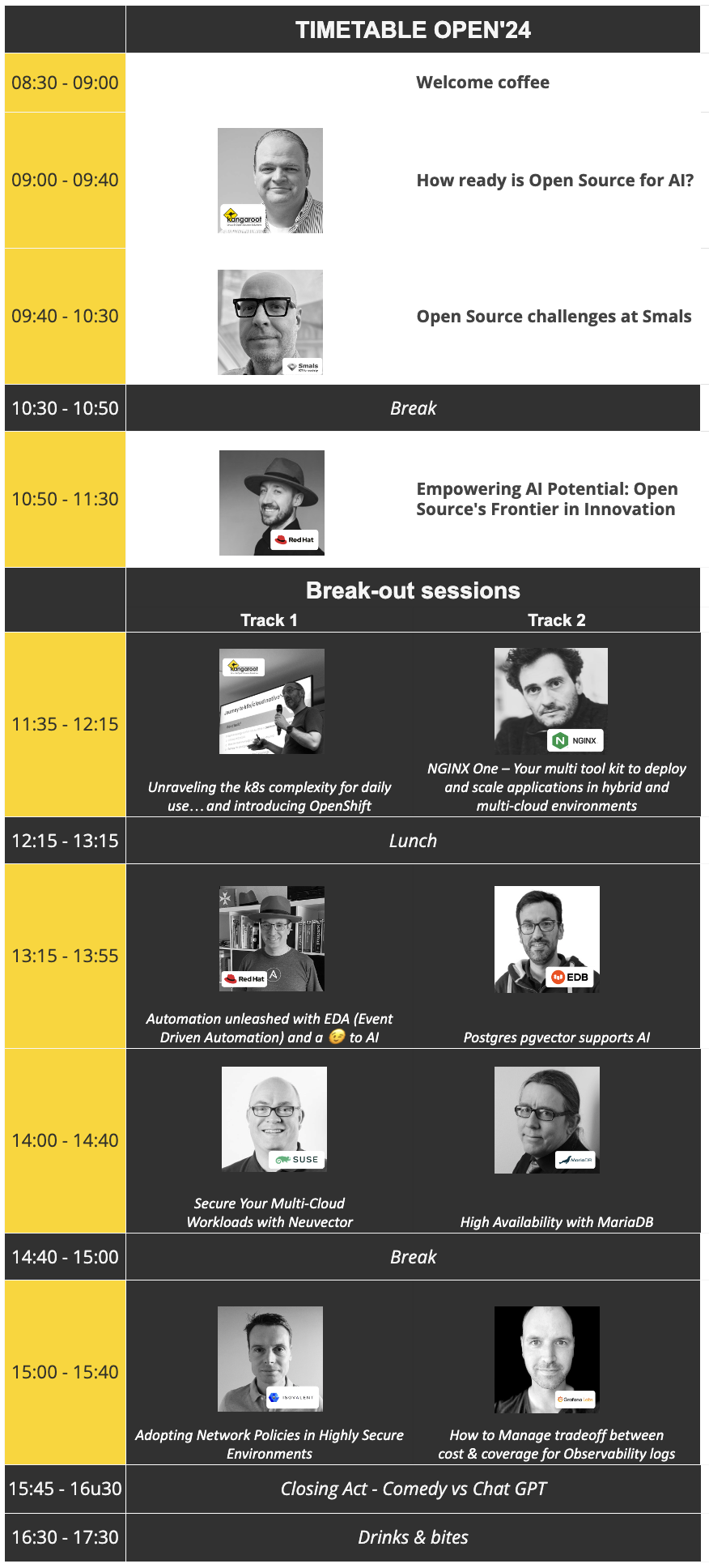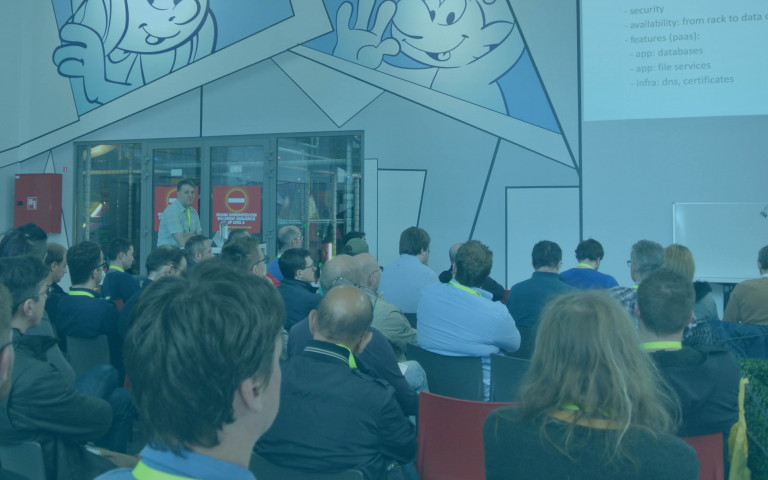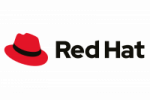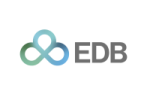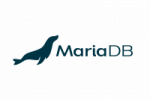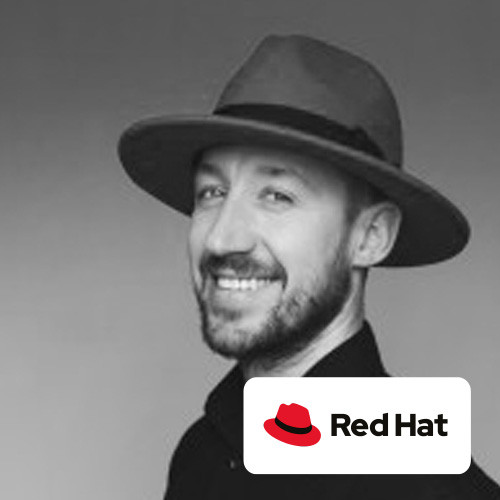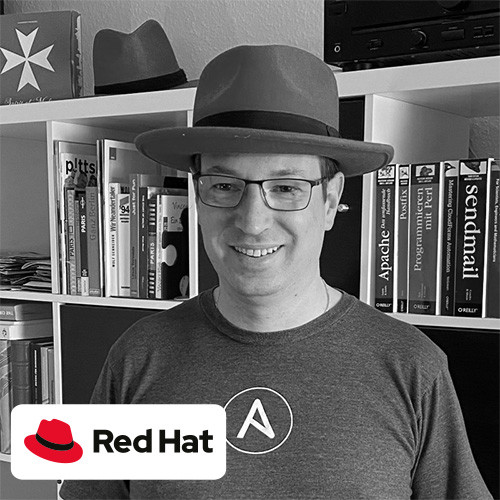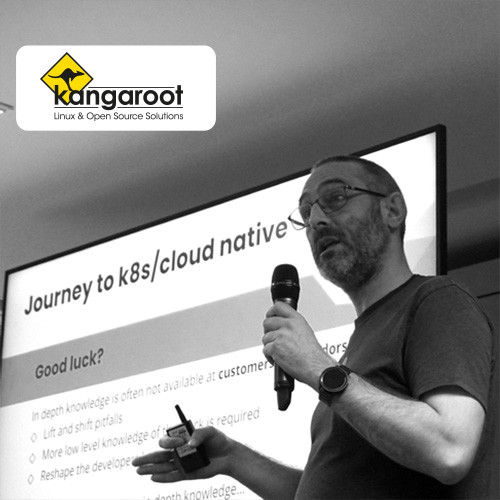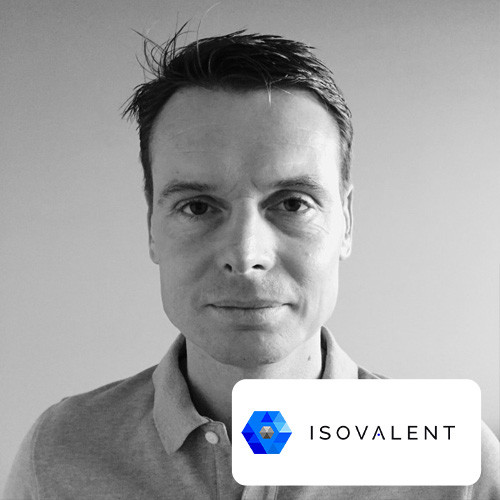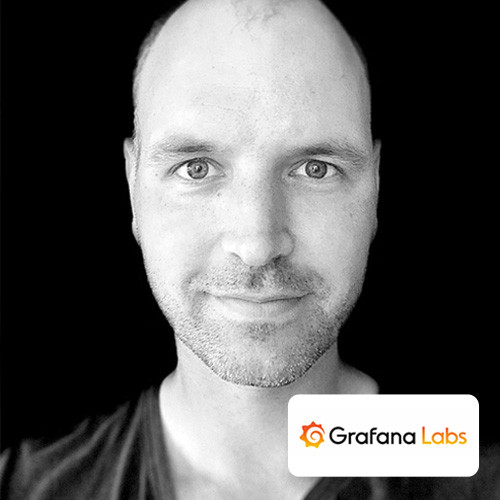OPEN'24
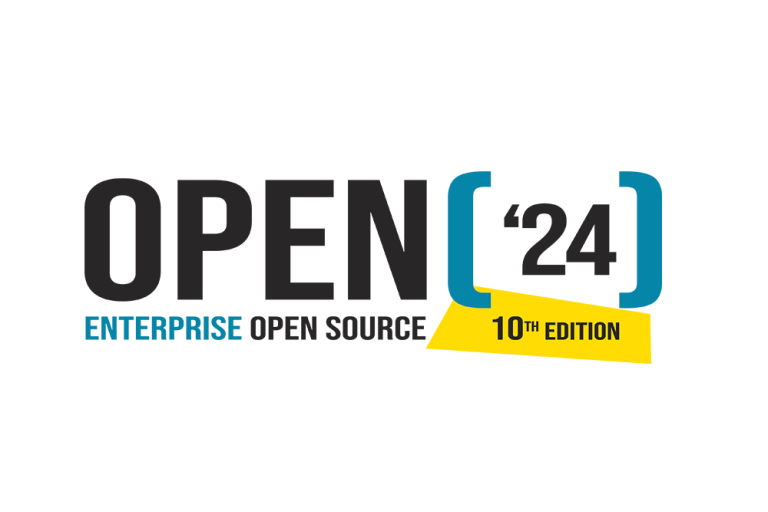
Event Location
Event address
Extra remarks
Join us for this open source conference! Hope to see & meet you there!
Van der Valk is located in Mechelen nearby the road exit ‘Mechelen-Noord’ at the E19, making it easily accessible by car. There is a big parking lot next door (Parking Keerdok). The train station is also nearby. Mechelen railway station is a 30-minute walk, Mechelen- Nekkerspoel is only a 20-minute walk.
Parking Keerdok
You can reach Parking Keerdok through a direct exit of the N16. To get from the parking to the hotel you can use the bicycle and pedestrian bridge. The address of Parking Keerdok is: Antonia Wolversstraat 1, 2800 Mechelen
Thé Open Source Event
Discover latest trends & tips
Mark your agenda for the 26th of March 2024! We are really looking forward to meet you all again at thé Belgian open source conference together with our partners Red Hat, EDB, NGINX, Grafana & SUSE!
In 1 single day you'll get the opportunity to listen to visionary speakers who will unfold their expectations for the future plus you can chat to enterprise-ready open source players.
Do not miss this opportunity to be back on track with your open source projects & register now! There are only a certain amount of limited seats available.
Closing act: ChatGPT Comedy
Satire Against The Machine
Graphic designers and copywriters may soon be made obsolete by AI, but humor is humanity's last bastion. Like Spartan soldiers fighting the Matrix, comedians battle ChatGPT's algorithm. Who writes the best jokes? And can you see who wrote what? What is AI thinking of our puny human jokes? As a clickbait article written by AI would say: the results will shock you!
The speakers & presentations
-
How ready is Open Source for AI?
TBC.
-
Open Source challenges at Smals
Open source, a driving force in our digital society, must step into the limelight once more. It's not just about promoting its adoption or principles; understanding its inner workings and the community dynamics is crucial. By harnessing the power of micro-communities, we can fully leverage open source to enhance public sector services. However, open source is currently under continuous threat, requiring a renewed commitment to its protection and advancement.
As a tight-knit public sector family, we must elevate our efforts by reimagining how we engage with open source in a systematic manner. Now is the time to step up our game by forging bonds and building bridges to uphold the principles of openness and community-driven development that lie at the heart of open source.
Let's work together to reimagine and shape a sustainable digital future for the public sector.
-
Empowering AI Potential: Open Source's Frontier in Innovation
Embark on a journey through the AI landscape within Open Source, where innovation knows no bounds. Discover the formidable force of OpenShift, a comprehensive ecosystem driving the Open Hybrid cloud revolution, with a nod to the seamless integration of OpenShift Virtualization. Finally, witness the pinnacle of AI prowess with Red Hat's cutting-edge solution: Red Hat OpenShift AI, where intelligence meets limitless possibilities.
Co-speaker: Maarten Vandeperre
-
NGINX One – Your multi tool kit to deploy and scale applications in hybrid and multi-cloud environments
NGINX One is the only application delivery system that combines the world class capabilities of NGINX open source and NGINX Plus, with operational insights designed to reduce complexity delivered through a SaaS console.
-
Secure Your Multi-Cloud Workloads with Neuvector
Neuvector delivers comprehensive container security, empowering organisations to safeguard their applications across any Kubernetes container platform. Join our session for a live demo and discover how Neuvector's platform-agnostic approach empowers you to:
- Secure containers, everywhere: Eliminate the limitations of single-platform security solutions.
- Simplify security management: Gain unified visibility and control across your entire container landscape.
- Focus on innovation, not vendor lock-in: Invest in security that empowers choice and flexibility.
Don't miss this opportunity to see the future of container security in action!
-
Automation unleashed with EDA (Event Driven Automation) and a 😉 to AI
In this live demo you will learn more about the new features of the Red Hat Ansible Automation Platform. What can be done today and what's planned for the future? You will see the generative AI capabilities of Ansible Lightspeed and see how Event-Driven Ansible will help you to build a modern automated IT infrastructure.
-
Unraveling the k8s complexity for daily use… and introducing OpenShift
Jochen walks you through the historic complexity of Kubernetes and provides you with tips and tricks to make your life easier. He explains common issues that Kubernetes users face and how to understand and solve them. Additionally, he explores the added value of OpenShift and how Red Hat aims to prevent these issues from occurring in the first place.
-
Adopting Network Policies in Highly Secure Environments
In the world of distributed computing, everything goes over the network, but not everything should be public. Unfortunately, Kubernetes networking is open by default and it is up to you to adopt network policies to secure it.
Using our knowledge of implementing network policies in complex regulated environments, we will introduce the fundamentals of Cilium Network Policies and the basics of application-aware and Identity-based Security. With these building blocks in place, we will compare a default-allow with a default-deny policy and how a risk-based approach helps you focus on securing the most sensitive workloads first. We will then discuss various exposure types and strategies for securing your workloads.
Applying this theoretical knowledge to the real world, we will explore how observability tools Cilium, Hubble, and Grafana provide you with Network Policy superpowers, like showing how ingress and egress connections are visualized, enabling you to configure the Network Policies using the Network Policy editor.
Finally, we will discuss how Network Policy Guardrails allow for keeping control while granting teams self-service management of Network Policies.
You will learn how to secure their network effectively and efficiently, even for highly sensitive workloads.
-
How to Manage tradeoff between cost & coverage for Observability logs
Logs have always been, and continue to be, a critical part of the troubleshooting workflow for observability and SRE teams. But the reputation of legacy solutions being expensive on budgets and resources – for storing and querying – results in teams making tradeoffs on which services and applications to instrument logging. This creates observability blind spots.
Learn how Grafana Loki can help you optimize multiple stages of your logging lifecycle – from supporting multiple log formats and smaller indexing, to blazing fast querying and long-term retention.
Uniquely built on Prometheus architecture, Grafana Loki is a cost-effective logging solution purpose built for observability.
-
High Availability with MariaDB
Anders is primarily a very technical Solutions Engineer, with long experience from the field of database software and has worked for many of the major database software companies. Also working as a consultant, specializing on development of database software, and has long experience with database API usage and standards.
-
Postgres pgvector supports AI
Postgres pgvector supports AI
Postgres is the number 1 most admired and desired database for developers.
pgvector is a PostgreSQL extension that enables storing, querying, and indexing vectors.
Enrich the data for better results
This session will demonstrate how you can leverage Postgres using the pgVector extension to integrate AI, especially in applications like recommendation engines, image search, and natural language processing, where vector similarity search is crucial.
Enhanced Postgres lifecycle, performance, and scalability.
EDB is also planning to use AI to enhance the lifecycle management of Postgres in areas such as performance, backup & recovery, security, migration, and more.
Using the Kubernetes Operator for Postgres
There is an expectation of significant growth in data and databases to support the demands of AI. Consequently, many companies are seeking Kubernetes operators to facilitate scalability, streamline management, and optimize resource usage.
In summary, Kubernetes simplifies the deployment, scaling, and management of containerized applications, empowering organizations to develop robust, scalable, and resilient cloud-native solutions.
The EDB team has developed an open-source Cloud Native Postgres operator. In the session, we will demonstrate how easy it is to deploy a high-availability Postgres environment, supporting planned (patching, upgrades) and unplanned downtime.
Timing
Please find in the grid below the exact timing of which sessions can be followed in which track. You're completely free to choose the afternoon sessions and switch from track to track. There is a 5 min. break in between all of them.
